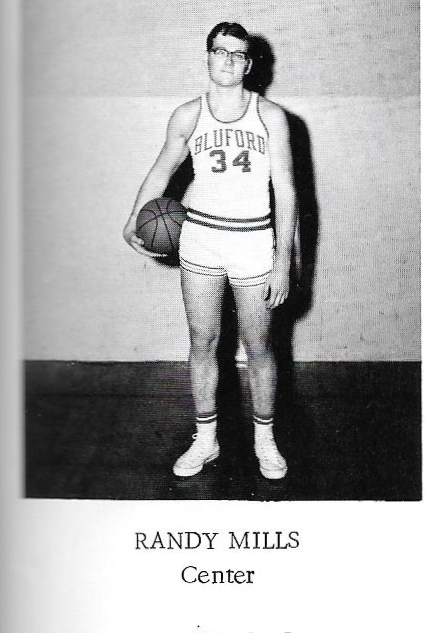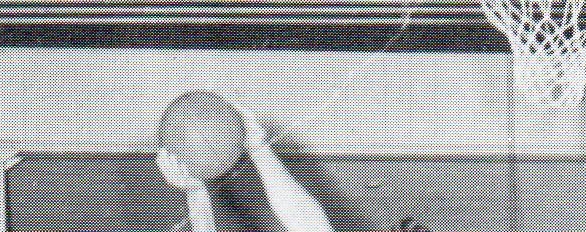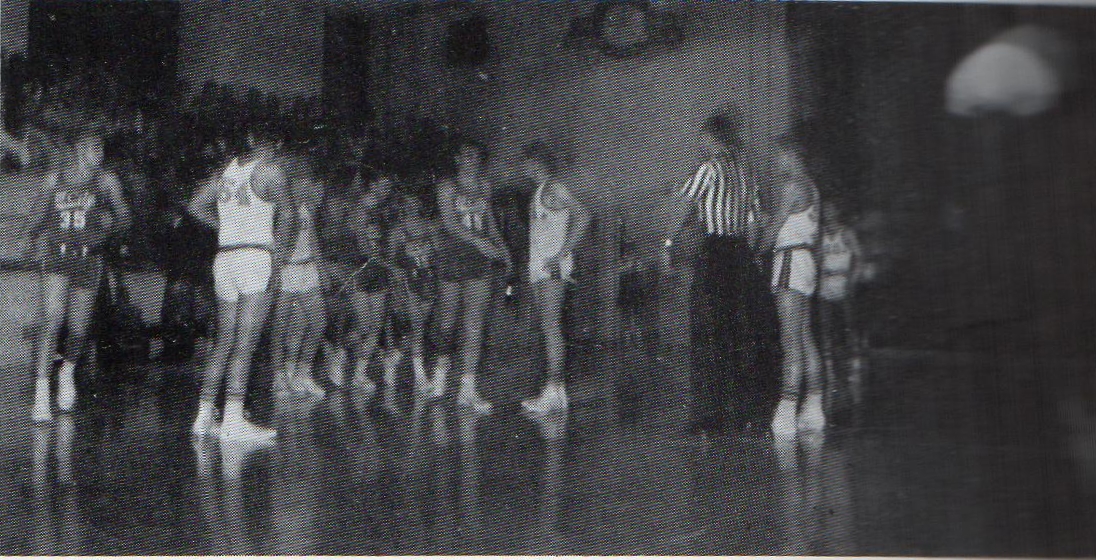
This photo, taken from the 1969 Webber Township (Bluford) High School yearbook, shows me as a rather solemn looking senior year basketball player. In truth, by my senior year, I was emotional worn out from playing the game. We lost the first game that year and won all the rest and were rated among the better small school teams in the state. But our success came with a price, with each game adding tremendous pressure to win. There was also the unstated expectations from my father, his hopes I’d play basketball in college. My dad cut out every newspaper clipping he could find about my games, clippings I still have today. Still, my years of playing basketball at Bluford taught me some great lessons.
In my book about growing up in southern Illinois, Not Like Your Father’s People: Stories from a Southern Illinois Boyhood 1951-1968, I talk about one of these lessons gained during my junior year of playing basketball, the time the Bluford Trojans played for the Little Egyptian Conference tournament championship against Crab Orchard.
Trojans Seek 13th Victory. Bluford, Crab Orchard in Little Egyptian Final
Bluford and Crab Orchard-a pair of Trojan quintets with red-hot records, collide tonight in the championship game of the Little Egyptian Conference tourney at Bluford. Coach Roger Yates’ Bluford club has a 12-2 record for the campaign, while Crab Orchard, coached by Richard Powers, has lost just once. That lone, defeat was a one-point decision with Bluford.
Mt. Vernon Register News, Sports Page, January 5, 1968
I liked to think that I possessed not a drop of hubris playing on what became an exceptional Bluford basketball team my junior year, seeking anonymity as I did in rebounding and blocking shots. Strangely, I soon carried out the two tasks with a ferocious determination, as if I had to prove something, as if my life depended on it. I’d rip down a rebound and savagely catch an opponent with the slash of a super-quick elbow or make a monstrous block shot, the shooter’s mouth wide open for an instant in shocked surprise before the rejected ball smashed into his face. I simply ruled under the basket. Another thing was also for certain—I did not want to be the one standing at the foul line or taking the last shot of the game that decided the outcome. Just the thought of public failure made me sick to my stomach.

That year’s conference tournament took place in the Bluford gym, and the house was packed, mostly with a large group of our noisy excited fans, hungry for that year’s Little Egyptian Conference tournament title, a title that had eluded the school for over a decade. We made quick work of our first two opponents, landing, as expected, in the title game, where we faced Crab Orchard High School. Crab Orchard was a long established small school powerhouse in southern Illinois basketball, and that year they had an incredible shooting guard, a senior named Corum Turner.
Early in the first quarter, I made a move that seemed to decisively change the direction of the game. Coming down with a rebound, I felt the feisty Turner on my back and shot him a quick elbow that smashed into his left eye. I had this motion down to an art, moving with such swiftness that I was never called for a flagrant foul.
Turner went down like a rag doll, both hands covering his face.
The referees called an immediate time out and helped the Crab Orchard player to the dressing room. He came back about ten minutes later, wobble-legged, having to be helped to the Crab Orchard bench, his left eye all but swollen shut, his right eye shooting daggers. Meanwhile, in Turner’s absence, we had built what surely was an insurmountable lead.
Five minutes away from the end of the game, the gym suddenly rocked with a roar from the Crab Orchard fan section. I turned to see Corum Turner kneeling in front of the scorers’ table, getting ready to check back into the game.
Swollen eye and all, Corum Turner could not miss. Coming off picks, he pumped in long shots from every angle, or slashed through our frantic defense to score impossible lay ups. What had been a fifteen point lead all but melted away, like the last dirty stubborn little snow pile in the spring. While all was desperate motion on the playing floor, the score clock slowly, so very slowly, wound down. It was as if Karma had slipped into the gym, calmly moving among the screaming, jumping, frantic fans, thoughtfully stroking her chin, seeing who’d been naughty or nice.
Ed Case made a long sweet jump shot from deep in the corner, hitting nothing but net, putting us a point ahead but stopping the clock. There was four seconds left in the game and Coach Yates called our final time out. Every Bluford and Crab Orchard fan was standing, many of the Bluford fans all but dancing.
We circled our coach, our heads bent forward so that we could better hear him amidst all the rancorous noise, as he gave us our final instructions. “Their only chance is a long down court pass. There’s not enough time for anyone to dribble down to their end,” Coach told us. “Michels, Osborn, Case, and Donoho, you guys swarm around the inbound pass area to deny them an easy inbound pass and Mills, you’ll stand down court to knock away any long passes.”
I for one was pleased I would be stationed away from the action, with no possibility of screwing up, ready with my long arms to knock a pass out of the air. It would not exactly be like making a game winning shot, but at least it would be a final exclamation mark on a hard fought and exciting win.
We put our hands together and then broke from the huddle. I think we all took deep breaths. Four seconds would surely pass in a blink of an eye.

The best laid plans of mice and men. The ball came in to Corum Turner. He sprinted through our entire defense, moving like a bolt of lightning in my direction, there where I stood beneath their basket. Out of the corner of my eye, I thought I caught a glimpse of my dad, standing up on his tiptoes and both arms up in the air, as if he could help me swat the ball away.
Everything went into slow motion, with me wondering why the horn to end the game had not sounded, and Coach screaming, “Don’t foul, Mills! Don’t foul, Mills!” In what must have been milliseconds, I thought it was funny what the coach was shouting. It sounded like he didn’t want me to foul myself. He should have been saying instead, “Don’t foul him.” But I knew what he meant, and I was determined not to be the goat of the game, not to be the one to put this basket making machine of a player at the foul line with no time left on the clock.
Corum Turner charged right up to me, his one good eye, like a demonic wink, looking right into my two good eyes. He stopped, jumped straight up in the air and tossed in the gentlest little jump shot I ever saw. The ball was in a perfect rotation in the air when the horn sounded. At least I did not foul him.Oddly, after the game, Coach hardly mentioned anything about the final shot, the basket that broke the hearts of all the Bluford fans. He just sat with his shoulders slumped forward, in a folding chair in the deadly quiet dressing room, looking through the scorebook. He glanced up at me as I left and without any malice said, “I was just waiting for you to cram that ball down Corum Turner’s throat.” Then he turned back to the scorebook, as if he hoped to find a mistake that would win us back the ball game.
Crab Orchard Wins Little Egyptian Conference Tournament.
Crab Orchard won the Little Egyptian Conference title with a 66-65 victory over Bluford. The Crab Orchard Trojans won at the horn when Corum Turner dribbled the length of the court for a setup shot.
Southern Illinoisan, Sports Page, January 7, 1968